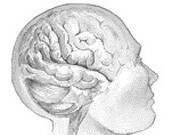Biomarkers Show Potential for Parkinson’s Diagnosis
Researchers also hope it will help doctors track treatment
January 2015 Briefing – Neurology
Here are what the editors at HealthDay consider to be the most important developments in Neurology for January 2015. This roundup includes the latest...
Estrogen May Lessen Cognitive Effects of Lead Exposure
May explain why lead exposure is less likely to cause brain damage in girls than in boys
Patient Engagement Can Cut Costs, Improve Outcomes
Initiatives can decrease hospital visits, cut morbidity and mortality, up treatment adherence
Heavy Drinking in Middle Age Rivals HTN, DM As Stroke Risk
By age 75, however, blood pressure and diabetes became better predictors of stroke
Cardiovascular, Cerebral Effect for Red Bull + Mental Stress
Increase in systolic and diastolic blood pressure, heart rate, decreased cerebral blood flow velocity
Anxiety Moderates Amyloid-β Association With Cognition
Correlation moderated by elevated anxiety symptoms; greater decline in high-anxiety group
Cerebrovascular Reserve-Based Strategy Is Cost-Effective
Cost-effective tool for prevention of stroke in asymptomatic patients with carotid artery stenosis
Cost of Meds Contributes to Placebo Effect in Parkinson’s
Parkinson's patients given fake drugs fared better on 'more expensive' medication
Eye Tracking Could Quantify Symptoms of Brain Injury
Could serve as measure of severity of concussion-related ocular motility disruption



















